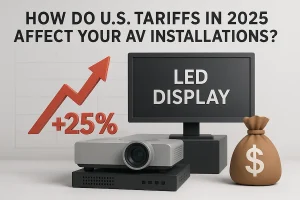New U.S. Export Framework: Nvidia and AMD to Remit 15% of China Sales, Legal Challenges Loom
In a singular and unprecedented arrangement, U.S. semiconductor heavyweights Nvidia and Advanced Micro Devices (AMD) have agreed to pay a 15% share of their revenue from certain chip sales to China. The remittance, mandated by the Trump administration in exchange for export licenses, has ignited claims that the agreement could violate constitutional prohibitions on export taxes.
Under the agreement, Nvidia will remit 15% of proceeds derived from its H20 artificial intelligence (AI) chip, while AMD will do so for sales of its MI308 processor. These fees are required to secure permission for exports—marking a rare case in which U.S. export control intersects with revenue extraction rather than purely national security concerns.
The shift follows an April export suspension of the H20 chip. Nvidia reported that in one recent quarter, it already absorbed $4.5 billion in charges tied to excess H20 inventory, noting that without restrictions the company would have realized $2.5 billion in additional revenue.
A spokesperson for Nvidia stated, “We follow rules the U.S. government sets for our participation in worldwide markets,” further expressing hope that export control constructs will allow “America [to] compete in China and worldwide” and that “America’s AI tech stack can be the world’s standard if we race”. AMD has not issued a similar public comment.
Legal experts swiftly raised alarms about the constitutionality of the arrangement. Article I, Section 9, Clause 5 of the U.S. Constitution explicitly forbids export taxes: “No Tax or Duty shall be laid on Articles exported from any State.” While the U.S. permits administrative fees related to export licensing, revenue-based charges—such as this 15% levy—have no precedent in export control policy.
William Reinsch, senior adviser at the Center for Strategic and International Studies and a former undersecretary of commerce during the Clinton administration, criticized the deal, stating, “From a policy perspective, it essentially says our national security is up for sale, which is not a good message to convey”.
Political analysts see the deal as a potent example of “command capitalism”—a model where the government leverages market access and trade policy as instruments of corporate governance and fiscal gain.
President Trump publicly framed the agreement as a hard-fought negotiation, claiming he initially demanded a 20% share, before settling at 15% following discussions with Nvidia’s CEO, Jensen Huang. He also described the H20 chip as “obsolete,” using that rationale to justify the revenue-sharing approach.
Meanwhile, national security specialists remain skeptical, warning that even reduced-performance versions of these advanced chips—such as rumored variants of Nvidia’s Blackwell series with diminished capabilities—could, in aggregate, still significantly bolster China’s AI development.
Analysts argue that the absence of U.S. AI chips in China allowed domestic rivals, including Huawei, to accelerate their GPU development. Huawei’s Ascend 910B, for example, now positions itself as a competitor on par with Nvidia’s A100 chips.
Steven Dickens, CEO and analyst at HyperFrame Research, noted that while the fees represent a new cost, tapping into China’s booming demand remains lucrative: “These are fundamental weapons in the race for AI supremacy… It’s still a good deal for AMD and Nvidia. China is a key market that has rampant demand… Who is the loser here?”.
U.S. lawmakers from both parties expressed concern over the legal and strategic dimensions of the deal. Republicans and Democrats alike have questioned whether the revenue-sharing structure represents innovative diplomacy or an overreach of executive authority.
The arrangement arrives amid a broader climate of economic recalibration. Trump extended a 90-day truce in the U.S.–China trade war, delaying tariff escalations until November 9 and maintaining existing 30% duties on Chinese imports. The 15% revenue levy complements other economic levers being deployed in ongoing trade discussions.
With export licenses now being granted under the new terms, legal challenges may lie ahead. Potential plaintiffs include corporate shareholders or state governments, particularly those in states like California, where these chipmakers are headquartered.
Critics warn that treating national security as a negotiable currency could blur the line between policy and profit motives, undermining moral authority in diplomatic negotiations and setting concerning precedents.
The Trump administration’s agreement with Nvidia and AMD to impose a 15% revenue-sharing model on chip sales to China signals a striking transformation in U.S. trade policy. While the deal reopens China’s AI market to U.S. firms and offers a revenue stream for the government, it also invites legal challenge, political scrutiny, and deeper debate over the intersection between national security and commercial interests.











